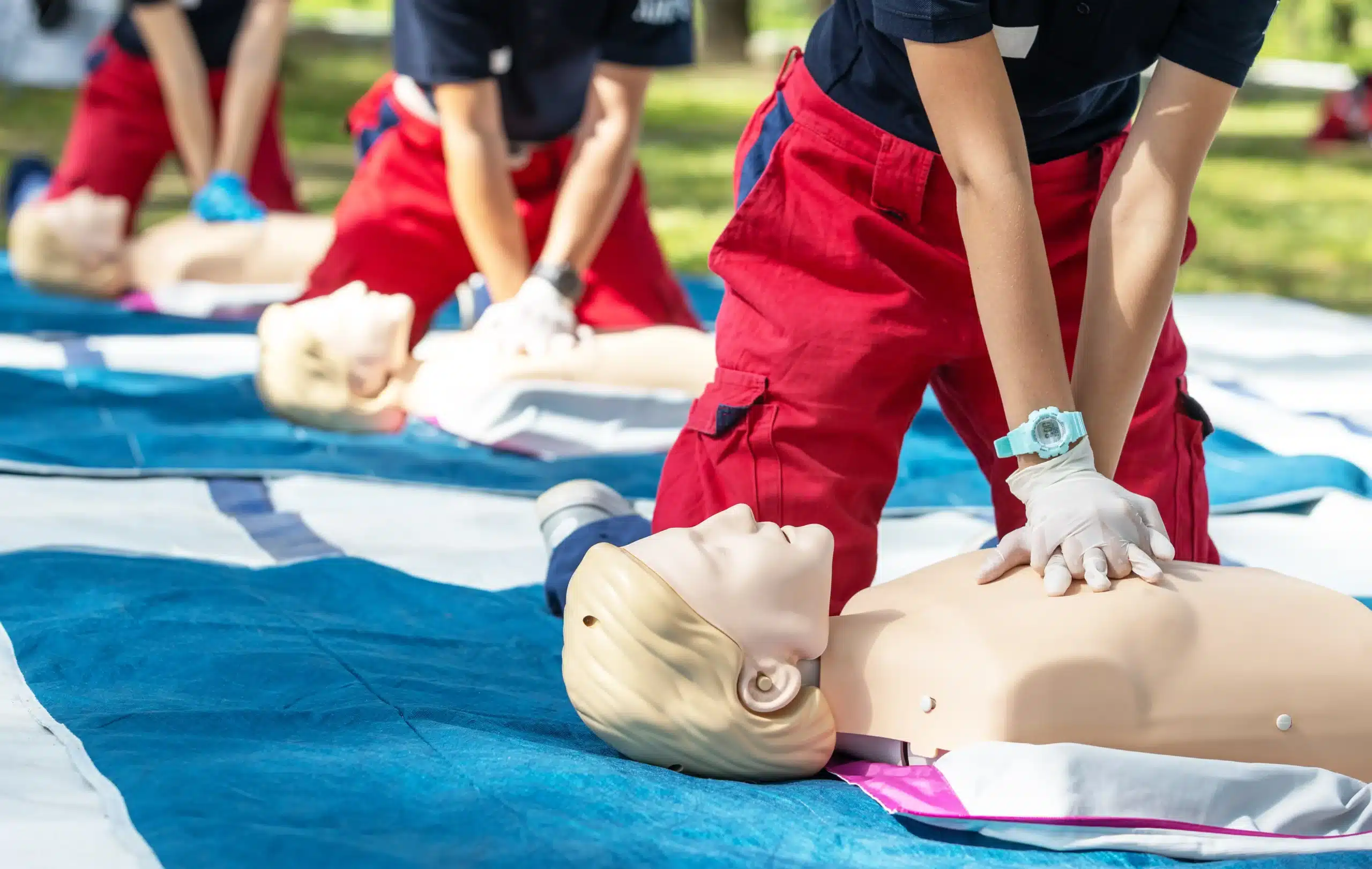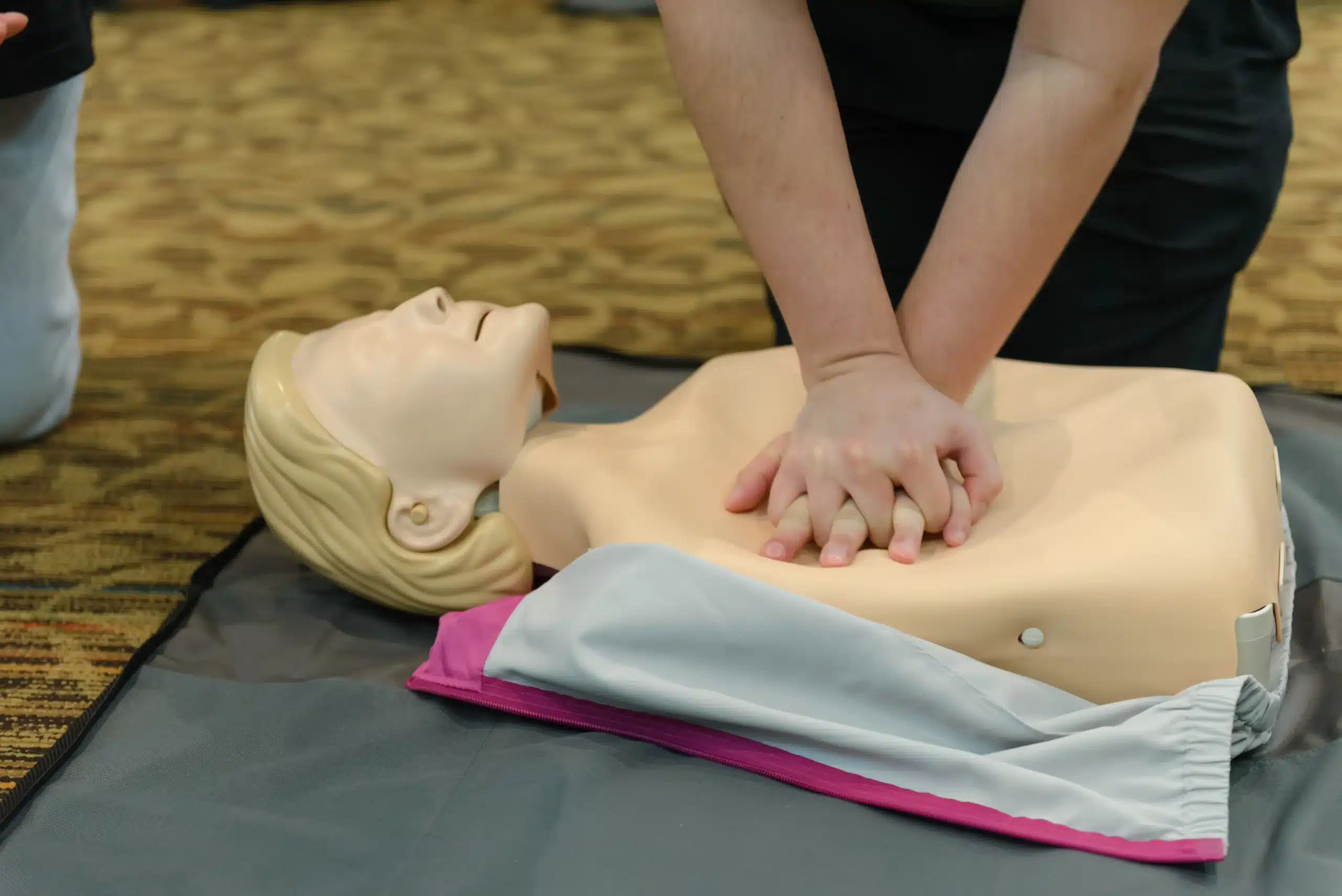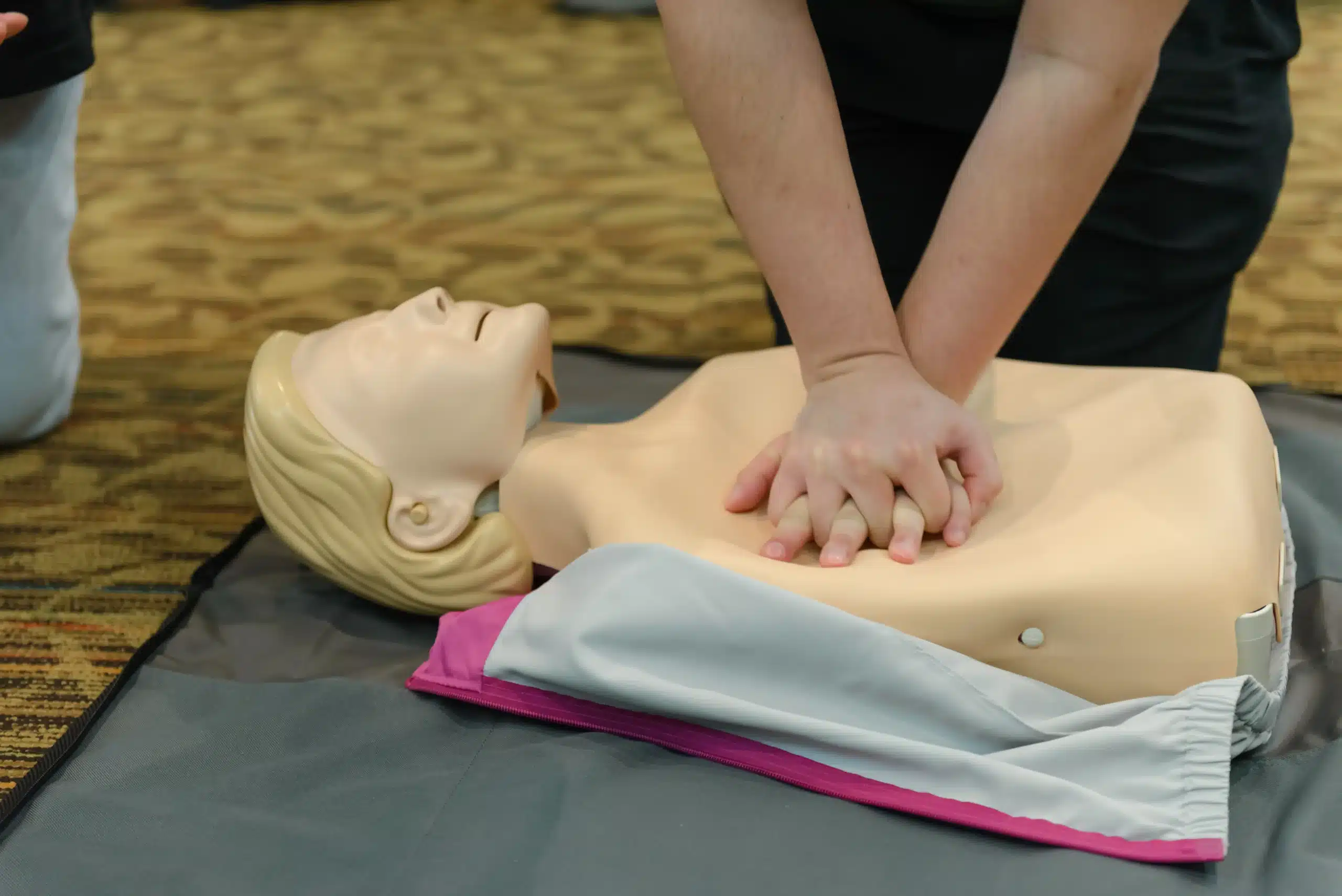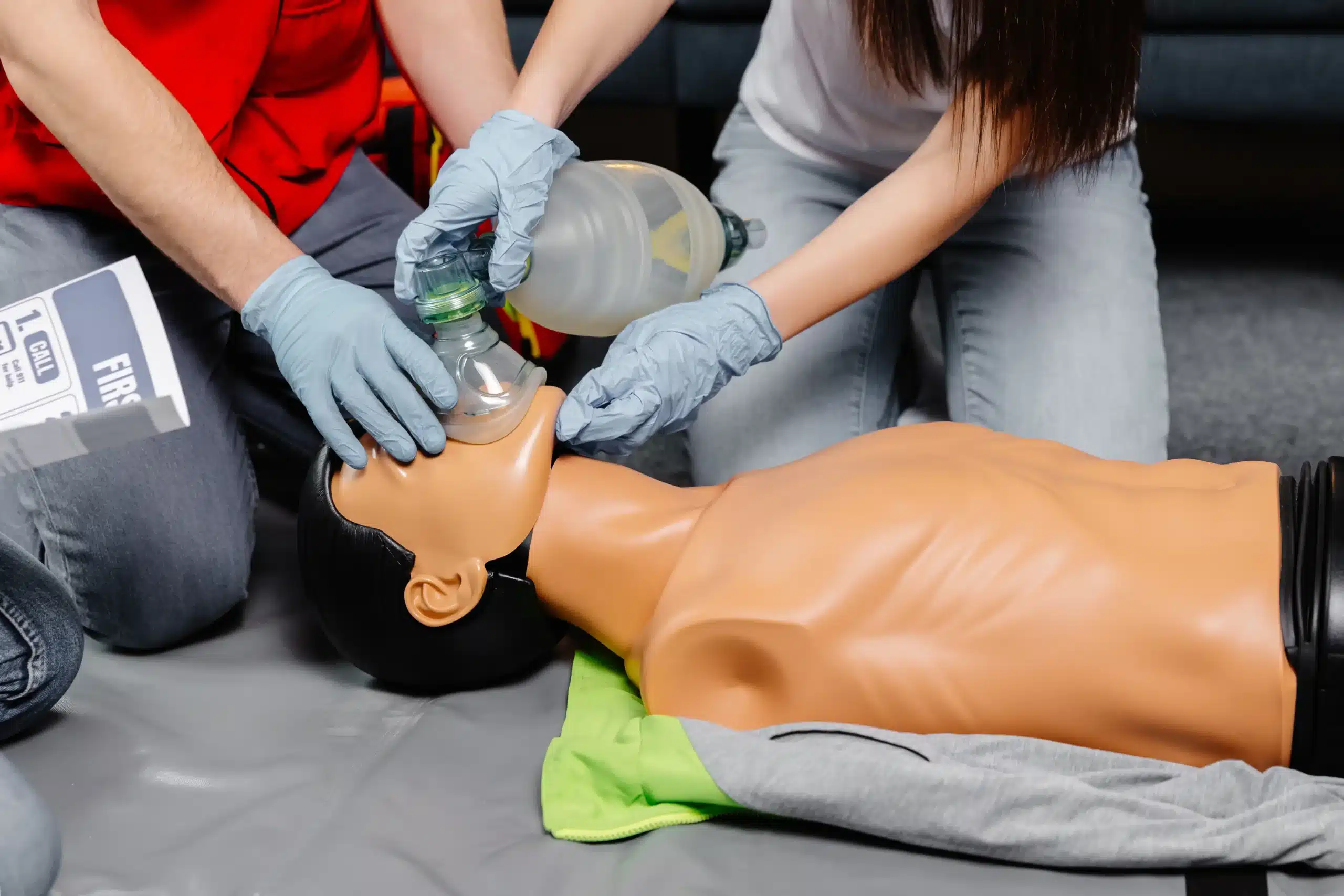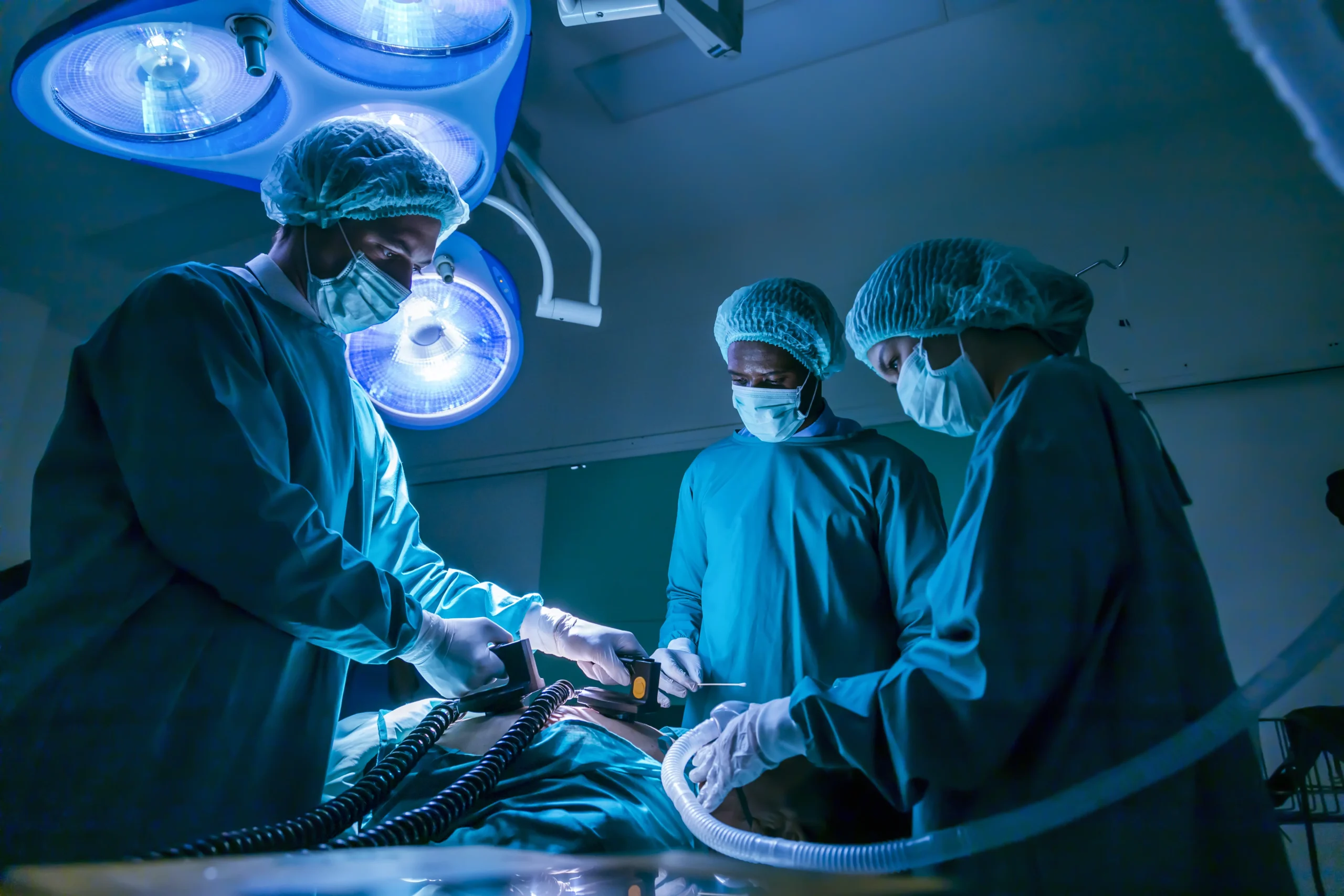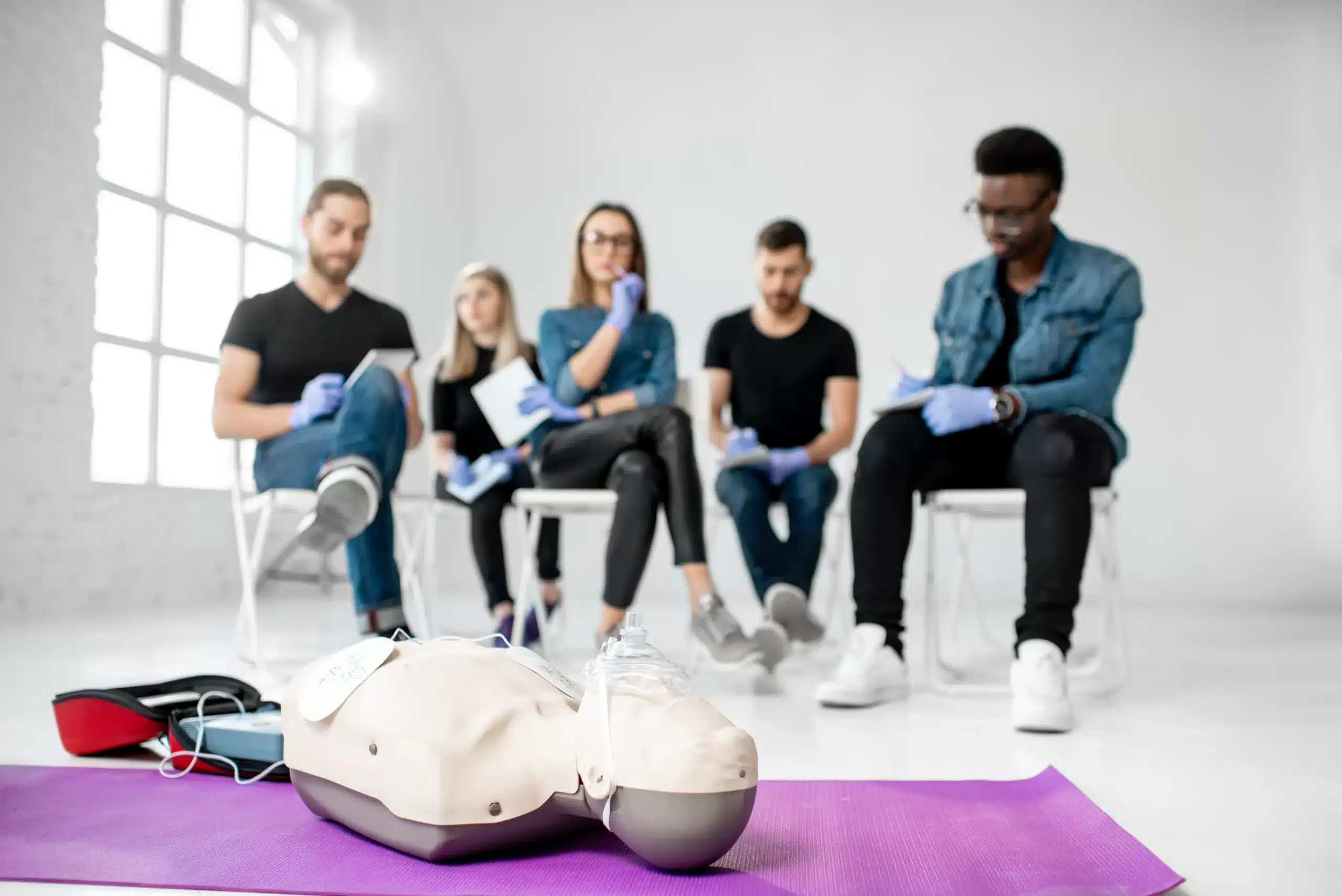Working in healthcare, you know seconds can matter during a cardiovascular emergency. Having the right training, like Advanced Cardiovascular Life Support (ACLS), can make all the difference. It’s not just about having the certification; it’s about confidently applying those life-saving skills when they’re needed most. This post breaks down everything you need to know about ACLS, from understanding its importance to finding the best ACLS courses in SF and navigating the certification process. We’ll cover costs, course formats, what to expect in your training, and how to stay up-to-date with the latest guidelines. Whether you’re a seasoned healthcare professional or just starting your journey, this guide will help you find the perfect ACLS course in San Francisco to advance your career and enhance your ability to provide critical care.
Key Takeaways
- ACLS is crucial for effective emergency response: It provides healthcare professionals with the knowledge and skills to handle serious cardiovascular events, directly impacting patient survival rates. Make sure your training aligns with current AHA guidelines.
- Explore various ACLS course formats in San Francisco: From blended learning to traditional classroom settings, find a course that matches your learning preferences and busy schedule. Consider factors like location, instructor experience, and available resources when making your choice.
- Invest in your ACLS training and maintain your certification: Earning your ACLS certification is a valuable career asset. Stay prepared by renewing your certification every two years and staying informed about the latest updates in cardiovascular care.
What is ACLS & Why is it Important?
ACLS stands for Advanced Cardiovascular Life Support. It’s a structured set of guidelines and protocols used by healthcare professionals to manage serious cardiovascular emergencies like cardiac arrest and stroke. Think of it as a comprehensive roadmap for providing advanced life-saving interventions. ACLS training focuses on quickly recognizing and treating these life-threatening conditions, ensuring healthcare providers can respond effectively under pressure. You can learn more about ACLS and its importance on Safety Training Seminars website.
Why is ACLS certification so crucial? It directly contributes to better patient outcomes and survival rates in these critical situations. By preparing healthcare teams to act swiftly and efficiently, ACLS helps improve the chances of recovery. Most hospitals and emergency medical services across the US require AHA-approved certification is a must-have for healthcare providers in acute care and emergency settings, validating their expertise in responding to life-threatening cardiovascular events. It also demonstrates a commitment to maintaining the highest standards of patient care.
Find Top ACLS Courses in San Francisco
Finding the right ACLS course can feel overwhelming with so many options. To simplify your search, I’ve compiled a list of reputable providers in San Francisco. Remember to visit their websites for the most up-to-date schedules and pricing.
Safety Training Seminars
Safety Training Seminars offers a comprehensive ACLS course that follows the latest American Heart Association guidelines. They’re known for their excellent customer service and focus on preparing students for real-world emergencies. Their convenient San Francisco location also serves surrounding areas like Daly City, San Mateo, and Oakland. They also offer a low price guarantee.
HeartStart CPR
If you need your ACLS certification quickly, HeartStart CPR might be a good fit. They offer ACLS classes throughout the Bay Area, with same-day certification cards available upon successful course completion.
Bay Area CPR
For those who prefer online learning, Bay Area CPR provides online ACLS certification options. Their courses adhere to AHA standards, ensuring you receive high-quality training recognized nationwide.
UCSF Kanbar Center
The UCSF Kanbar Center offers a blended learning ACLS course, combining online coursework with in-person skills sessions. This format offers both flexibility and hands-on practice.
Positive Heart CPR
Positive Heart CPR is another well-regarded provider of ACLS training in San Francisco. They focus on equipping healthcare professionals with the skills to handle emergency situations effectively.
Revive CPR
Revive CPR also offers a variety of ACLS courses designed to meet the needs of healthcare providers in San Francisco. They are consistently listed among the top ACLS providers in the city.
Choose Your ACLS Course Format & Duration
Finding the right ACLS course format and duration depends on your learning style, schedule, and comfort with technology. Let’s explore the most common options available in San Francisco:
Blended Learning Options
Blended learning ACLS courses offer a practical approach by combining online learning with in-person skills practice. You’ll typically complete the cognitive portion of the course online, working through modules at your own pace. This self-directed learning offers flexibility for busy professionals. After finishing the online materials, you’ll schedule a short in-person skills session (about 30-40 minutes) at a convenient testing center. This session focuses on demonstrating your proficiency in essential ACLS skills. Bay Area CPR offers this blended learning format, allowing you to balance online convenience with the necessary hands-on training.
In-Person Classroom Courses
Traditional in-person ACLS courses provide a structured learning environment with direct interaction with instructors and peers. These courses offer a more immersive experience, with real-time feedback and opportunities to ask questions. The hands-on practice component is integrated throughout the course, allowing you to develop and refine your skills with guidance from experienced instructors. For those who thrive in a collaborative setting, in-person training offers valuable peer interaction and immediate feedback. This format is ideal for those who prefer a collaborative learning environment and value direct instructor support. Cascade Training discusses the advantages of in-person learning in more detail.
Online Components and Skills Assessments
Many ACLS courses now incorporate online components, even if they aren’t fully blended. These online modules often cover the theoretical knowledge and allow you to learn at your own speed. The online portion usually takes around three to four hours. However, the total time commitment, including the in-person skills assessment, can vary. San Francisco CPR provides further information on online ACLS classes and what to expect. Understanding the time commitment for both the online and in-person components will help you choose a course that fits your schedule. For initial certification, expect around 12 hours total, while renewals typically require about six.
Understand ACLS Certification Costs in San Francisco
Getting your ACLS certification or recertification is an investment in your career and your ability to provide crucial care. Understanding the costs involved helps you budget effectively and choose the best training program for your needs. Here’s a breakdown of typical
Initial Certification Pricing
For first-time ACLS certification in San Francisco, expect to pay between $260 and $290. HeartStart CPR, for example, offers an initial ACLS certification course for $260, covering approximately 12 hours of instruction. This price is competitive with other providers like the American Heart Association (AHA), whose ACLS certification (including online coursework and skills testing) costs $290.
Renewal Course Costs
Renewing your ACLS certification is typically less expensive than initial certification. HeartStart CPR’s ACLS Renewal Class is priced at $190 for about six hours of instruction. This refresher course covers essential updates and reinforces core skills. The AHA includes their renewal training within their $290 fee, covering both online learning and the required skills check.
Group Rates and Discounts
If you’re coordinating training for a group, such as a hospital staff or a team of healthcare providers, ask about group discounts. Many training centers, including HeartStart CPR, offer reduced rates for on-site group training sessions. They may also offer special promotions—like their current 10% discount (use code ‘Holiday’)—making group training a smart financial choice. Check with your preferred provider about their group training options and discounts.
What to Expect in Your ACLS Course
Getting ready for your ACLS class? Here’s a preview of what you’ll learn and experience:
Course Content and Curriculum
ACLS courses cover a range of life-saving interventions. You’ll dive into essential topics like airway management techniques, recognizing and responding to heart rhythms, and understanding the medications used in cardiovascular emergencies. The curriculum also emphasizes effective teamwork and communication—critical skills during a resuscitation scenario. Many courses, like those offered by HeartStart CPR in the San Francisco Bay Area, adhere to the American Heart Association guidelines, ensuring you receive high-quality, up-to-date training.
Hands-On Skills Practice
One of the most valuable aspects of in-person ACLS training is the hands-on practice. You’ll work with real equipment and realistic simulations, allowing you to apply what you’ve learned in a safe environment. Instructors provide immediate feedback, helping you refine your skills and build confidence. This interactive approach is essential for mastering the techniques required to handle real-life emergencies.
Certification Process and Validity
After successfully completing the course and passing the required assessments, you’ll receive your ACLS Provider Course Completion Card. This card is valid for two years and demonstrates your proficiency in advanced cardiovascular life support. Remember that renewing your certification every two years is crucial to stay current with the latest guidelines and maintain your credentials.
Choose the Right ACLS Course Provider
Finding the right ACLS course provider is crucial for a valuable learning experience. Here’s what to consider:
Accreditation and AHA Certification
First, ensure your chosen provider offers American Heart Association (AHA) certified courses. Most hospitals and emergency services require AHA-approved ACLS certification, so verify this before enrolling. AHA certification ensures your training aligns with the latest, evidence-based guidelines. This is the gold standard, so don’t settle for less.
Instructor Qualifications and Experience
Look for courses led by experienced, certified instructors with a strong clinical background and a passion for teaching. In-person ACLS classes allow direct interaction with instructors, providing immediate feedback and personalized guidance. This hands-on learning is invaluable for mastering essential skills.
Facility and Equipment Quality
A quality learning environment is essential. Choose a provider with well-equipped facilities that offer realistic simulation scenarios. Modern equipment and a comfortable learning space can significantly improve your training. High-quality facilities often indicate a provider’s commitment to a superior learning experience.
Student Reviews and Testimonials
Reading past student reviews offers valuable insights. Look for comments about the quality of instruction, curriculum effectiveness, and overall experience. Positive feedback from previous students builds confidence in your choice. Real-world experiences shared by others inform your decision.
Prepare for Your ACLS Course
Getting ready for your ACLS course? A little prep work goes a long way. This section covers the essentials to help you feel confident and prepared on course day.
Prerequisites and Required Materials
The American Heart Association (AHA) requires all ACLS students to have the current provider manual, reflecting the 2020 Guidelines. You’ll need this manual before, during, and after the course, so make sure you obtain a copy beforehand. A solid foundation in basic life support (BLS) is also essential for success in ACLS; the AHA recommends a current BLS for Healthcare Providers certification. Upon successful completion of the course, you’ll receive your ACLS Provider Course Completion Card, valid for two years.
Study Tips and Resources
Give yourself a head start by reviewing the ACLS guidelines and algorithms before class. Familiarizing yourself with the material beforehand will allow you to focus on practical application during the course. The AHA website offers a wealth of resources to help you prepare, including practice tests and case studies. Staying up-to-date with the latest guidelines is crucial for providing effective patient care.
What to Bring on Course Day
Along with your ACLS Student/Provider Manual, bring a notebook and pen to take notes. Dress comfortably—you’ll be participating in hands-on simulations. A water bottle and a light snack are also good ideas to keep you energized. Since ACLS covers advanced cardiac care, including medication administration, airway management, and rhythm interpretation, being well-rested and focused will help you absorb the information.
Maintain Your ACLS Certification
Once you’ve earned your ACLS certification, staying current is key. Knowing the renewal process and available resources will make maintaining your skills straightforward.
Renewal Requirements and Timeframes
ACLS certification is valid for two years. Before your certification expires, you’ll need to complete an ACLS renewal course. This ensures you’re up-to-date on the latest American Heart Association guidelines and best practices for advanced cardiovascular life support. Don’t let your skills lapse—stay prepared for any emergency.
Continuing Education Options
Many ACLS courses offer continuing education (CE) credits for licensed professionals like registered nurses and EMS personnel. Check with your licensing board or your chosen course provider to confirm CE availability and requirements. Earning CEs while renewing your ACLS certification is an efficient way to fulfill professional development requirements.
Stay Updated with AHA Guidelines
The American Heart Association (AHA) regularly updates its guidelines for ACLS. Staying informed about these changes is crucial for providing the best possible care. Refer to the AHA website for the most current information on ACLS protocols. Some training centers, like the UCSF Kanbar Center, work directly with the AHA to ensure their courses align with the latest guidelines. You can also explore additional resources for helpful information and tips. Staying informed demonstrates your commitment to providing high-quality patient care.
Key Factors for Healthcare Professionals
As a healthcare provider, your schedule is demanding. Finding the right ACLS course means finding one that fits your needs and helps you maintain your credentials efficiently. Here’s what to consider when choosing an ACLS course in San Francisco:
Flexible Course Scheduling
Balancing patient care with continuing education can be tricky. Look for ACLS courses that offer flexible scheduling options. Many online ACLS courses offer same-day certification after you pass the skills test. This flexibility is key for busy professionals. Check out some of the online ACLS classes in San Francisco to see what options work for you.
24/7 Access to Course Materials
Round-the-clock access to course materials, practice tests, and instructor support is a major plus. Knowing you can review materials or get your questions answered anytime makes preparing for your ACLS certification much easier. This kind of online support is invaluable for healthcare professionals with unpredictable schedules.
Available Instructor Support
Having access to knowledgeable instructors is essential. Look for courses that offer instructor support via email or phone, so you can get the help you need when you need it. This support can make a real difference in your understanding of the material and your confidence going into the exam.
Same-Day Certification Options
If you need certification quickly, look for ACLS courses that offer same-day certification after passing the skills test. This can be extremely helpful if you need to meet job requirements or are pursuing new opportunities. Same-day certification streamlines the process and gets you back to work faster.
Special Features & Current Offers
Post-Course Resources and Support
At Safety Training Seminars, we believe your learning doesn’t end when you finish the course. We equip our students with the tools they need for long-term success. After successfully completing all course requirements, you’ll receive an American Heart Association ACLS Provider Course Completion Card, valid for two years. This certification demonstrates your proficiency in advanced cardiovascular life support. We understand the importance of staying current with the latest guidelines, which is why we ensure all participants have access to the most current ACLS Provider Manual. This ongoing access allows you to refresh your knowledge and maintain your skills, contributing to better patient outcomes in critical situations. The value of this ongoing training is also highlighted by resources like Code Blue Training, which emphasizes how ACLS training improves the preparedness of healthcare teams.
Discounts and Promotions
We’re committed to making quality ACLS training accessible and affordable. Check with our team about current promotions and discounts. We also encourage you to explore our low price guarantee for the best possible value. We strive to offer competitive pricing for all our courses, including BLS, ACLS, and PALS certifications, as well as our RQI program. We want to make sure that cost isn’t a barrier to receiving this important training.
Related Articles
- Advanced Cardiac Life Support (ACLS) in SF: Get Certified – San Francisco CPR Classes
- ACLS Courses San Francisco: Your Comprehensive Guide – San Francisco CPR Classes
- Best Online ACLS Classes in San Francisco – San Francisco CPR Classes
- ACLS HeartCode Oakland: Your Certification Guide – San Francisco CPR Classes
- ACLS Renewal in SF: Your Complete Guide – San Francisco CPR Classes
Frequently Asked Questions
What exactly does ACLS training cover?
ACLS courses teach healthcare professionals how to manage severe cardiovascular emergencies like heart attacks, strokes, and cardiac arrest. You’ll learn how to quickly assess a patient’s condition, perform advanced airway management, interpret heart rhythms, administer appropriate medications, and work effectively as part of a resuscitation team. The training emphasizes quick thinking and decisive action in high-pressure situations.
How do I choose between in-person and blended learning ACLS courses?
Think about your learning style and schedule. If you prefer a structured environment with direct interaction and immediate feedback, an in-person class might be best. If you need more flexibility and prefer learning at your own pace, a blended learning course, which combines online modules with a shorter in-person skills session, could be a better fit. Both formats provide the necessary knowledge and skills, so it comes down to personal preference.
How much does ACLS certification cost in San Francisco?
Initial ACLS certification typically costs between $260 and $290 in San Francisco, while renewal courses are usually around $190. Prices can vary slightly depending on the provider, so it’s always a good idea to check with specific training centers for their most up-to-date pricing. Some providers also offer group discounts, so if you’re training with colleagues, ask about potential cost savings.
How long is my ACLS certification valid, and how do I renew it?
Your ACLS certification is valid for two years. To renew, you’ll need to complete a refresher course before your current certification expires. Renewal courses cover updates to the guidelines and reinforce essential skills. Make sure you sign up for your renewal course in advance to avoid any lapse in your certification.
What if I have more questions about ACLS certification?
If you have additional questions, reach out to your chosen training provider directly. They can provide specific details about their courses, schedules, and any other information you might need. Don’t hesitate to ask – they’re there to help you through the process.


